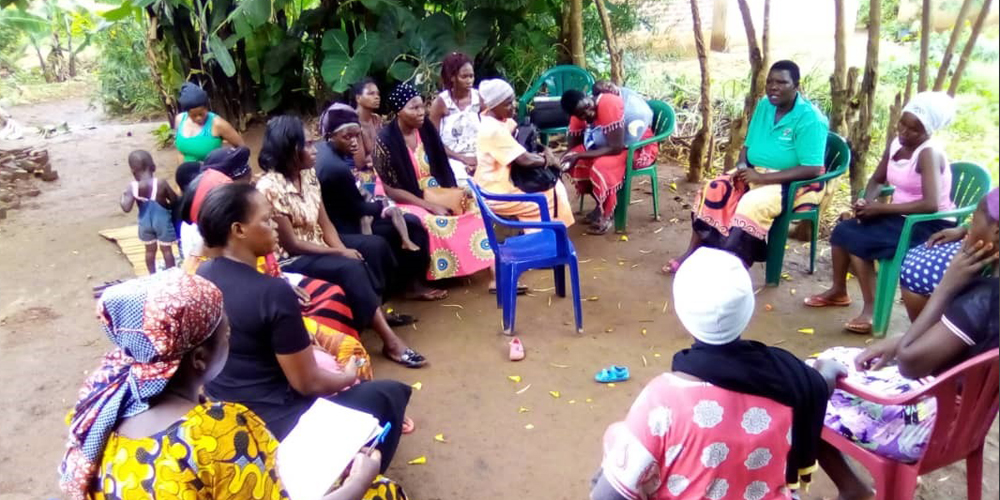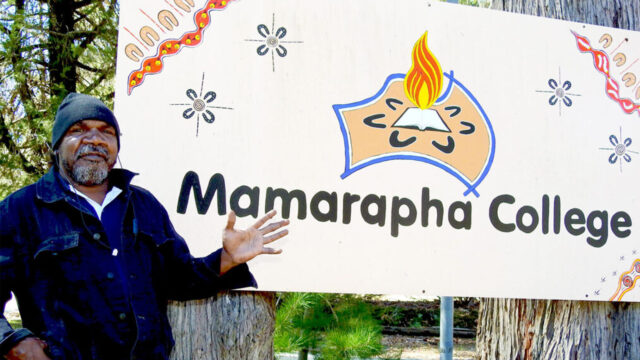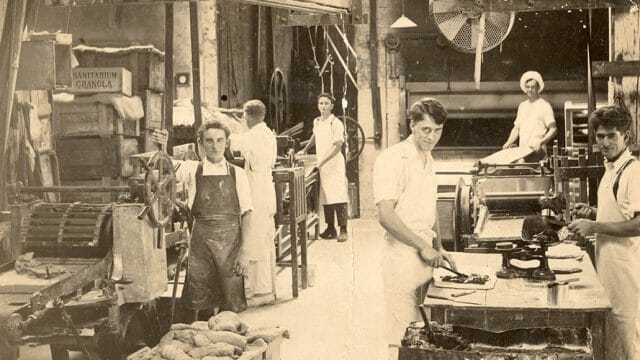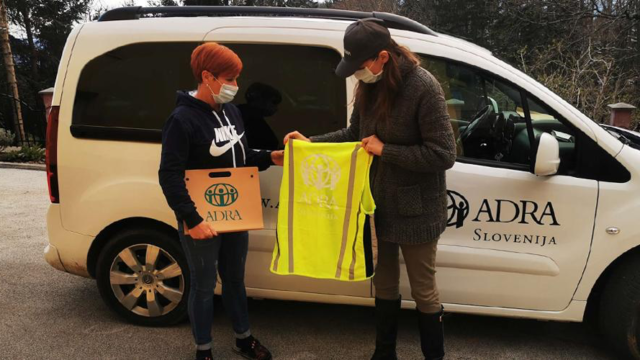FARM STEW ministry is helping church members, neighbors to live fuller, healthier lives.

By: Joy Kaufmann, and Adventist Review
Fifteen women in brightly colored dresses, with a few who were fully veiled, gathered under the shade of a mango tree to cook. Wanyange Hill, a rural village in eastern Uganda, has no electricity or running water, yet these women have something many others lack—joy!
What was the reason for their celebration? It was a FARM STEW training day. FARM STEW is a supporting ministry of the Seventh-day Adventist Church, and its name comes from an acronym of eight elements under its motto, “A recipe for healthy living” — Farming, Attitude, Rest, Meals, Sanitation, Temperance, Enterprise, and Water.
On that particular day, the topic was the rainbow dish — a colorful dish combining several vegetables and a source of protein — and making soy tofu-based scrambled “eggs.”
For FARM STEW, the key has been not only to share principles of healthy living and nutrition but also to train other trainers to expand its area of influence. As a surprising “side dish” of the ministry, the community as a whole, and even marital relationships, are getting healthier too.
Dramatic Improvements
Recently, women taking part in one of the group training sessions shared their testimonies of the impact of the ministry in their lives. They expressed great appreciation for Betty and Jonah, the two FARM STEW trainers who, every Tuesday for five months, have brought the “recipe” of abundant life to the community.
Norah Naigaga, a member of Wanyange Seventh-day Adventist Church, had been struggling to feed her four children. Her husband is an army officer deployed in Somalia and can rarely provide any money. Since FARM STEW came to her village and trained her on plant-based nutrition and how to grow her own vegetables, her life has improved dramatically.
“When FARM STEW teaches you, it helps your family, your community, and even your neighbors. There is a big change in my family,” Naigaga said. “For me, getting money to buy milk was a problem, but at my home now, we take milk as we like. Even my husband asked me, ‘Where do you get all this money? You buy a lot of milk; I can see liters and liters.’”
Naigaga said that the ministry taught them how to prepare food, and now the whole family is benefiting.
“My husband asks me, ‘Where did you learn this?’” she said. “I always tell him, ‘We learned it at FARM STEW.’” And she added, “At our home, we even sing about FARM STEW!”
Better Nutrition, Better Health
Susan Kinto, also a church member, shared how the program has benefited her family.
“[We have learned] that is very cheap to get soya milk. I can get a kilogram [2.2 pounds] for less than a US dollar, and with one kilogram, I can get 12 cups,” Kinto explained. “We can even make a coffee substitute out of it!”
Kinto shared other things she has learned thanks to the FARM STEW initiative.
“I didn’t know the importance of water. Now I learned that I need to drink water,” Kinto said. “I can feel a huge difference in my skin. Every morning, before we brush our teeth, we drink water.”
It is the reason, Kinto said, that her husband helps her to remember about the weekly training, so she does not miss it. “He tells me, ‘Every Tuesday is training day!’” she said with a laugh.
Irene Wangadya is the lead organizer of a FARM STEW women’s group and also a church member. She shared what the ministry has meant for her and her family.
“In the past, our husbands were suffering, but now we are doing fine,” Wangadya said. “We have kitchen gardens and soy gardens, and we learned about sanitation.”
Wangadya shared that her sanitation habits have improved too.
“Before, I never used to wash my hands. I knew about soap, but we had no money for it,” Wangadya shared. “Then we learned that we could wash our hands with ash. It is something that is helping us stay healthy.”
The Need for Clean Water
Although what is happening in Wanyange Hill is incredibly hopeful, people still lack one of life’s essentials — clean water.
Children fetch water for their families, but the muddy color is an indication of the parasites that live in it. Those same organisms will often grow internally, swelling the belly with a swarm of worms that get first dibs on the food that enters the stomach. It is not uncommon to see children with skinny arms, sunken eyes, and big fat bellies caused by parasites.
But there is hope for increasing access to clean water. The FARM STEW women’s group started a savings club, and each member brings 6,000 Ugandan shillings (about US$1.75) each week. FARM STEW will partner with them to fix their broken borehole well for US$1,300. Their savings is the insurance plan they need to ensure that the pump will be maintained and repaired quickly if it ever breaks again.
We can only imagine that, at the pump, once again they will sing about FARM STEW.








